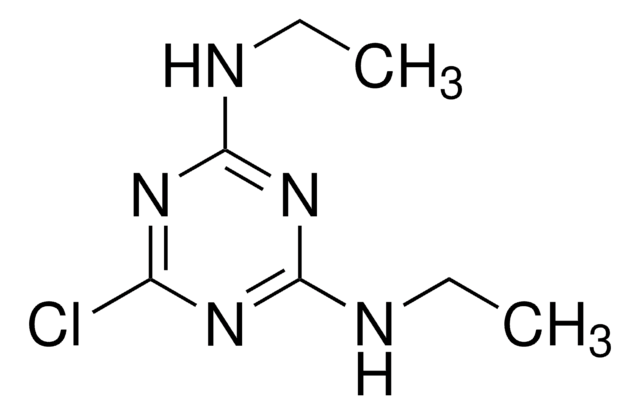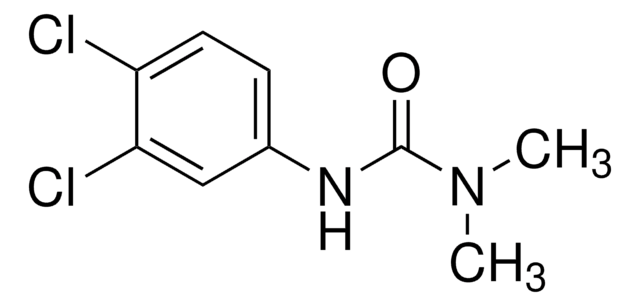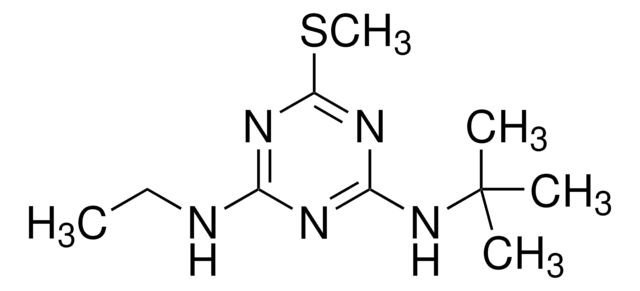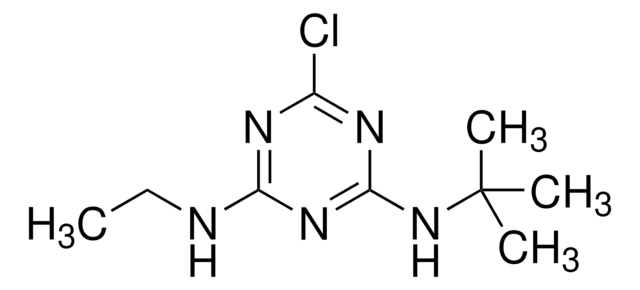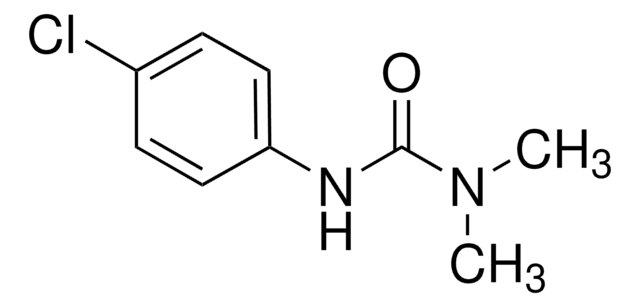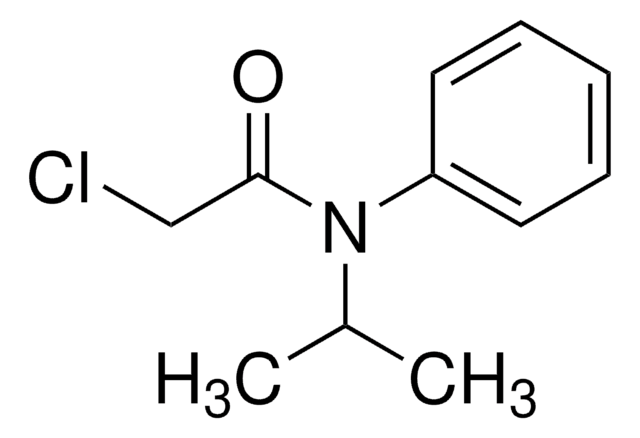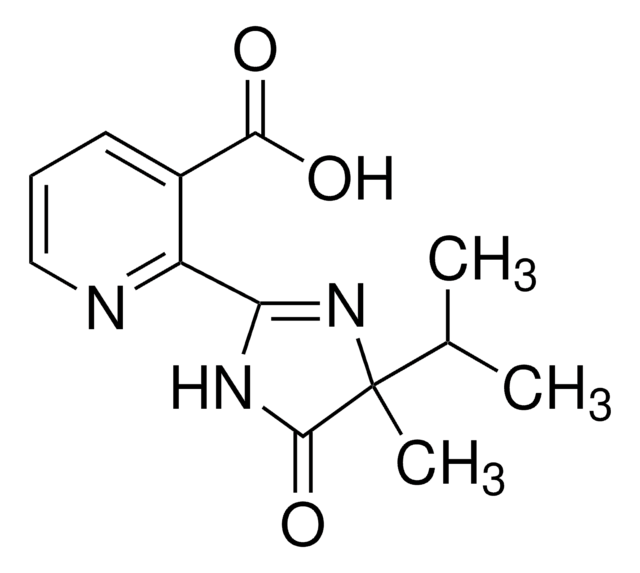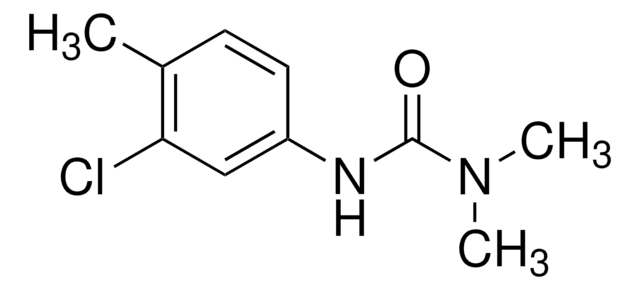45463
Diuron
PESTANAL®, analytical standard
Synonym(s):
3-(3,4-Dichlorophenyl)-1,1-dimethylurea
About This Item
Recommended Products
grade
analytical standard
Quality Level
product line
PESTANAL®
shelf life
limited shelf life, expiry date on the label
technique(s)
HPLC: suitable
gas chromatography (GC): suitable
application(s)
agriculture
cleaning products
cosmetics
environmental
food and beverages
personal care
format
neat
SMILES string
CN(C)C(=O)Nc1ccc(Cl)c(Cl)c1
InChI
1S/C9H10Cl2N2O/c1-13(2)9(14)12-6-3-4-7(10)8(11)5-6/h3-5H,1-2H3,(H,12,14)
InChI key
XMTQQYYKAHVGBJ-UHFFFAOYSA-N
Looking for similar products? Visit Product Comparison Guide
Application
Legal Information
Signal Word
Warning
Hazard Statements
Precautionary Statements
Hazard Classifications
Acute Tox. 4 Oral - Aquatic Acute 1 - Aquatic Chronic 1 - Carc. 2 - STOT RE 2 Inhalation
Target Organs
Blood
Storage Class Code
11 - Combustible Solids
WGK
WGK 3
Flash Point(F)
Not applicable
Flash Point(C)
Not applicable
Personal Protective Equipment
Choose from one of the most recent versions:
Already Own This Product?
Find documentation for the products that you have recently purchased in the Document Library.
Customers Also Viewed
Protocols
-methylcarbamate 10 μg/mL; Diuron; Propham; Siduron; Methiocarb, analytical standard; Linuron 10 μg/mL; Swep 10 μg/mL; Chlorpropham 10 μg/mL; Barban; Neburon
Our team of scientists has experience in all areas of research including Life Science, Material Science, Chemical Synthesis, Chromatography, Analytical and many others.
Contact Technical Service
